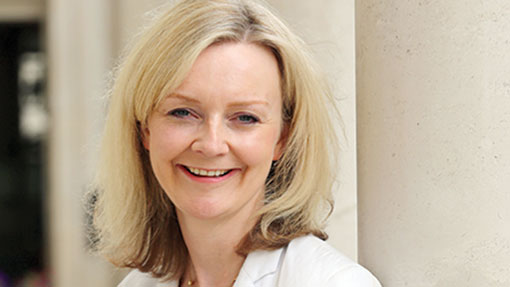Opinion: Defra secretary sets out CAP latest

British farmers and growers are some of the most competitive and innovative in the world, producing top-quality food, efficiently and cost-effectively. Food and farming is our largest manufacturing sector and is vital to the nation’s life and economy.
That is why I am determined to do everything I can to ensure farmers are able to compete nationally and internationally in food production.
This means helping boost exports, increasing self-sufficiency and ensuring that as many people as possible, from patients in hospital to hard-pressed families doing the weekly shop, are able to enjoy fresh, local and tasty food. It will also help us play our part in feeding a growing global population.
See also: CAP reform: At-a-glance guide for the UK regions
My first announcement as secretary of state was the launch of the Bonfield Report, which will help the public sector buy top-quality local produce, opening up £400m of new supply opportunities to British farmers.
Now we are announcing more details on CAP implementation for 2015. Within the constraints of the policy decided by Brussels, we have made the new rules as simple and flexible as possible. Not all elements have been agreed and one of my main priorities over the coming months will be pushing Brussels for greater flexibility and early decisions.
I know how important clarity is for farmers and that many of you are making planting decisions in preparation for the end of an early harvest. I also know, from talking to local farmers in Norfolk, about the concerns you have about the effect of new greening criteria and the three-crop rule on farm businesses.
That is why we have included hedges in the ecological focus areas so that more land can stay in production. I have looked at the RPA software that will allow farmers to map the hedges on their land. This will be thoroughly trialled and tested with farmers over the coming months as we are very keen to avoid delays in payments. This week we have further details on the hedge requirements and I will be pressing for the final details to be agreed as soon as possible.
We also want to minimise the disruption caused to your businesses by the three-crop rule. Whether a farmer is growing traditional arable, potatoes, salads or speciality crops – I do not want them to be adversely affected. The three crops can be grown over the course of a year and the inspection regime should reflect that. We are setting a two-month inspection window of May to June for the 5% of farms to be sample inspected, which should cover the vast majority of crops. If any crops have been harvested before 30 June, stubble will count as evidence that a crop has been grown. We want more evidence to be acceptable, such as physical signs or organic matter in the soil, or photographs and records. We are also pushing for exceptions for late-sown crops or crops with very short growing periods.
I do not want to see further public money spent on inspections or farmers having to fill in more forms or put up with more inspections. I am keen to build on the excellent work of my predecessor on earned recognition and reduce the amount of red tape and box ticking by reducing further the number of inspections in total.
As well as providing farmers with as much certainty as possible for the next cropping year, I am pushing the European Commission for more flexible inspection arrangements in general. I have already taken this up with the agriculture commissioner.
I want the crop diversification rules to be reviewed altogether and I have called for this as part of the commission’s 2016 review of greening. I am also seeking early clarity on the outstanding details of the programme that you need to be able to plan your businesses. I will notify farmers as soon as these are agreed.
I know how much excellent work farmers and landowners do for the environment, through their conservation efforts and promotion of habitats and wildlife. I want to encourage this and build on the tremendous progress that has been made in safeguarding species such as the cirl bunting, whose breeding population has, with the help of environmental stewardship, increased by 600% since 1989. In the autumn we will announce the details of the successor to the current environmental stewardship scheme, which will start in 2016. My focus will be on achieving the best outcomes in the simplest way with the least amount of red tape.
A much simpler system is essential to the industry’s ability to grow and compete. The reputation of British farming as one of the most dynamic and competitive in the world is one that has taken decades to achieve and is based on your hard work. This is something I am determined to safeguard and promote. I want to see our farmers farming, not form-filling.
Read more of our top news stories
